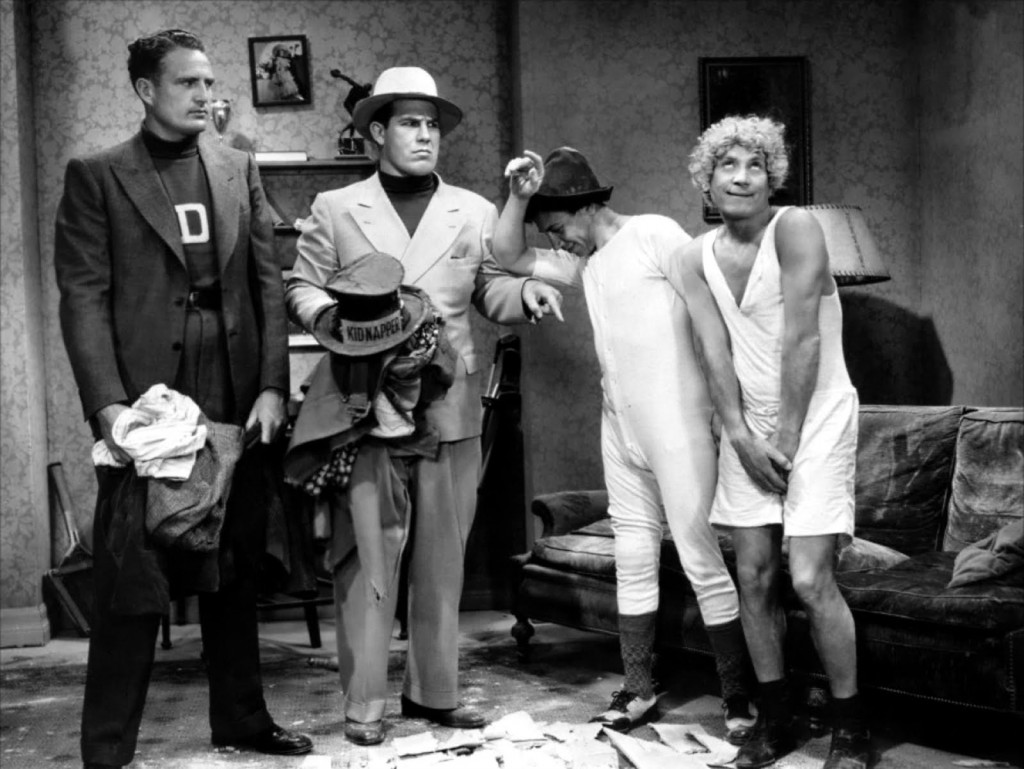by Wayne Koestenbaum
UC Press, 2012
336 pages
It's no secret that scholarly books on cinema can be deadening, and any play-by-play of 13 movie comedies sanctioned by a university press might reasonably seem like one to avoid. Not so The Anatomy of Harpo Marx, from the poet and cultural critic Wayne Koestenbaum, and published by UC Press, which has the nerve not to be just another impersonal, theory-glazed boredom generator. Instead it's a zesty and deeply literate joy to read.
Just as his previous nonfiction work, Humiliation, seemed like an apotheosis of new literary possibility in the age of overshare, so Koestenbaum's new book reinvigorates film studies. There's no special trick to it, really, just his own eruditely intimate way of seeing in the silent Marx brother a profound physical presence.
"As Andy Warhol filmed a man sleeping, and called it Sleep," Koestenbaum writes, "I want to commit media-heist, to steal a man from his native silence and transplant him into words, if only for the pleasure of taking illusory possession of a physical self-sureness that can never be mine." By casting his project in such confessional terms, Koestenbaum makes a sort of pact with subject and reader alike. He proceeds not just as an insightful scholar but also as a brainy, randy, vulnerable flirt.
Unpacking the famous screen comedian's nonverbal lyricism is of course a worthy academic undertaking, and Koestenbaum's subjective musings neatly disguise his rigor. It's his alertness to "foreshadowings that appear when we view earlier artifacts in hindsight" that allows Koestenbaum to coin the phrase "Kristallnacht Preview" for a given moment of 1933's Duck Soup, in which "Harpo apprehends catastrophe." Later, he writes, "I will lean on the Nazi theme; Harpo leans on it too. Harpo was a comic genius before the Third Reich came along, but the Third Reich gave Harpo's anarchy extra pointedness." And of course those retrospective foreshadowings continue into subsequent epochs; in 1937's A Day at the Races, for instance, "he has the traumatized expression of Jackie Kennedy on Air Force One as LBJ is sworn into the presidency."
Obviously that analysis may be subject to debate; what matters most is the peculiar and palpable force of Koestenbaum's investment -- the "ecstatic clarity" to be had from studying a screen persona through one's own history-sharpened lens. Diaristic and deceptively digressive, The Anatomy of Harpo Marx becomes a secondary celebration of context itself. Yet it never loses sight of the endlessly watchable man, and the endlessly meaningful mannerisms, in all those movies.
If Koestenbaum seems like exactly the right writer for this job, it's as much for the refinement of his appreciation as for his recognition of what makes something appreciation-worthy to begin with. As he rightly puts it, "Harpo beams upward at you, whoever you are."
